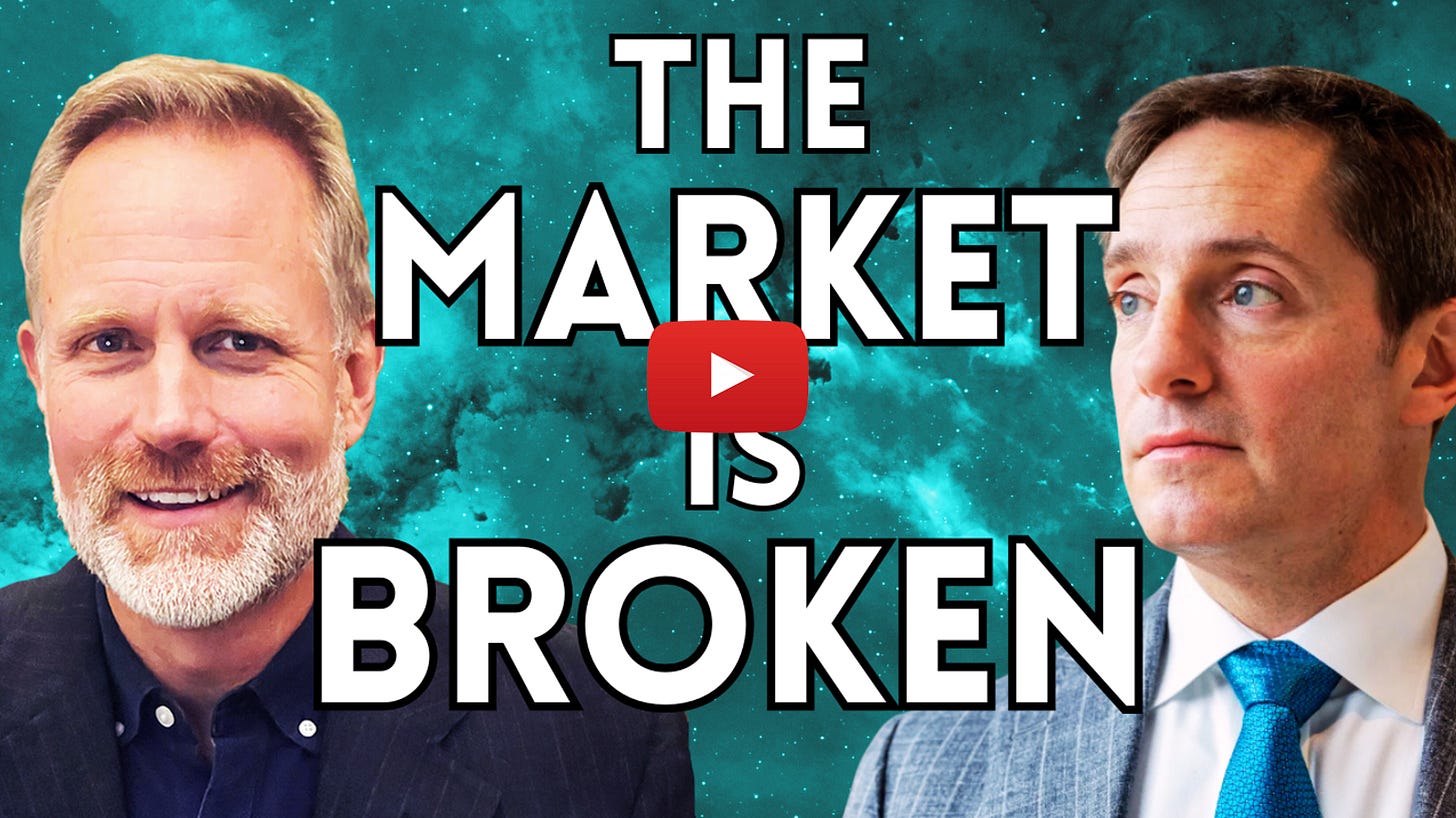Carson Block: Famed Short-Seller Explains Why The Market Is "Broken"
Too much abuse, fraud & underpricing of risk
ONLY 24 HOURS LEFT to buy tickets for Thoughtful Money’s upcoming conference this Saturday, March 15!!. Lock yours in now:
As mentioned many times on this program, stocks entered the year trading at or near record-high valuation extremes.
When stocks are at such overbought extremes, short-sellers smell opportunity. They've certainly had a lot of it over the past two weeks.
Today we have the good fortune of speaking with one of the best known short-sellers in the business, Carson Block, founder of Muddy Waters Research.
He's come to the conclusion that the markets, especially in the US, are "broken".
To find out why, click here or on the video below:
I’m so grateful to everyone who has kindly supported me by becoming a premium subscriber to this Substack. It’s making an important difference in helping me fund the substantial operating costs of running Thoughtful Money.
Premium supporters receive my “Adam’s Notes” summaries to the interviews I do, the wildly-popular MacroPass™ rotation of reports from esteemed experts, VIP discounts, plus periodic advance-viewing/exclusive content. My Adam’s Notes for this discussion with Carson are available to them below.
If you, too, would like to become a premium subscriber to this Substack (it’s only $0.52/day), then sign up now below:
Adam’s Notes: Carson Block (recorded 3.6.25)
EXECUTIVE SUMMARY:
Carson emphasized that U.S. financial markets are fundamentally broken, largely due to the growing dominance of passive investing. Index funds, such as those tracking the S&P 500, continuously buy shares without regard for valuation, removing them from the tradable float. This persistent demand artificially inflates stock prices, leading to an environment where market movements are dictated by technical flows rather than company fundamentals. The result is a market increasingly detached from traditional valuation metrics, making it difficult to assess when a true correction might occur.
Carson, as an activist short seller, highlighted that shorting has become increasingly challenging due to the overwhelming influence of passive flows and artificially high valuations. He pointed out that when a correction finally happens, it could be severe because passive funds will have to liquidate their holdings at any price to meet investor redemptions. Unlike active funds, which might strategically sell based on fundamentals, passive funds do not make such considerations, making a downturn potentially sharp and disorderly. The reduction of active investors over the past decade has further weakened the market's ability to absorb major sell-offs.
Carson identified unemployment as a key metric to watch, as significant layoffs could reduce 401(k) contributions and force withdrawals, leading to a decline in passive fund inflows. Historically, central banks have responded to economic slowdowns by injecting liquidity into the system, but he questioned whether such interventions would be as effective in future downturns. He also warned that
Keep reading with a 7-day free trial
Subscribe to Adam Taggart's Thoughtful Money® to keep reading this post and get 7 days of free access to the full post archives.





